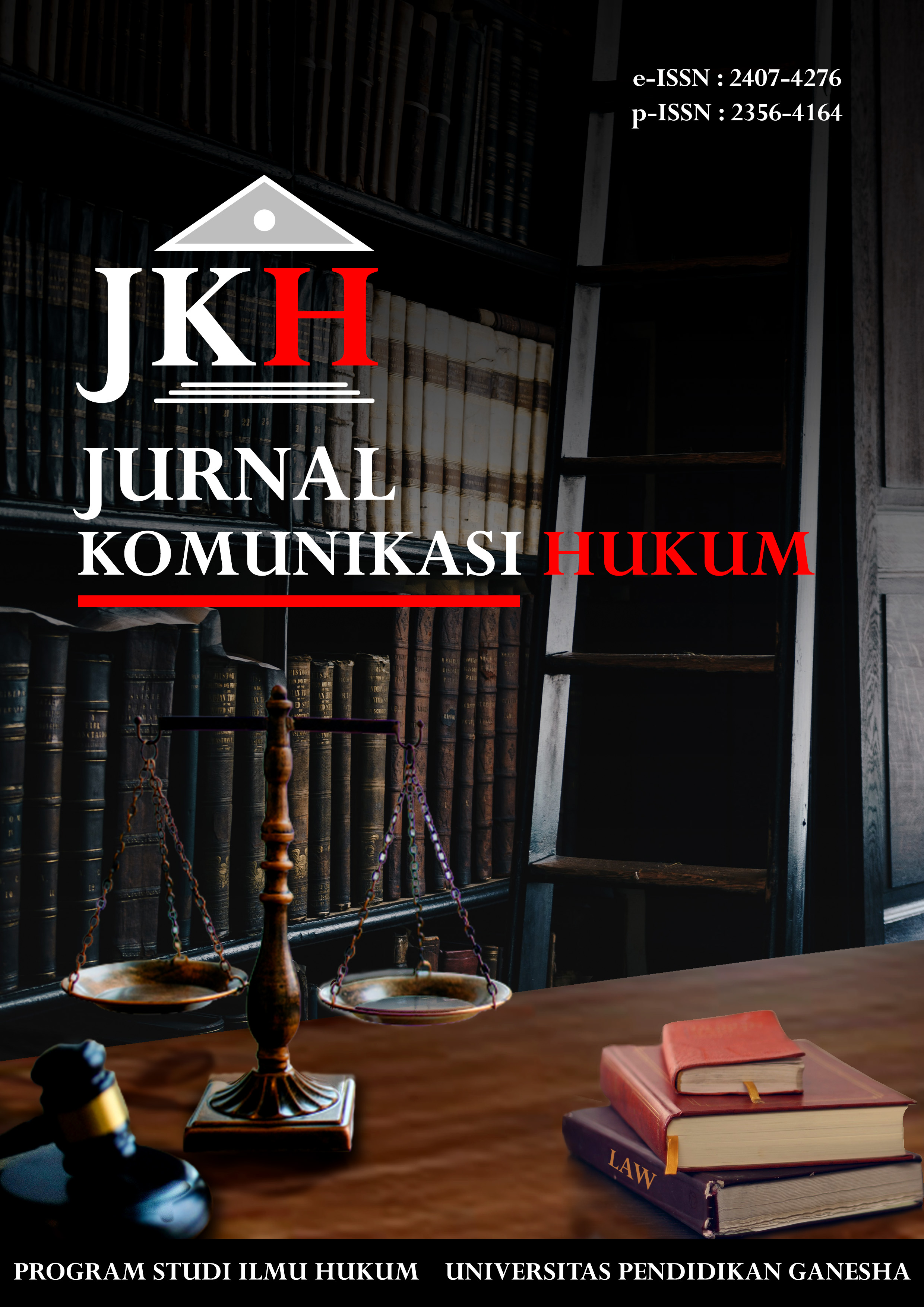Peningkatan Partisipasi Aktif Dan Hasil Belajar Siswa Dalam Pembelajaran Pendidikan Kewarganegaraan Melalui Penerapan Metode Pembelajaran Kooperatif Tipe Stad
DOI:
https://doi.org/10.23887/jkh.v7i2.38273Abstract
Citizenship lessons require a student not only to receive lessons in the form of knowledge, but also to develop from attitudes, skills and values. In relation to the quality of education, especially education at the junior high school level, it is still far from what we expect. So it is still necessary to improve learning achievement/outcomes, where the Graduation Standards targeted by the government are always increasing every year so that all educators complain about them, even parents of students. With the problem of the condition of low achievement or student learning outcomes, several efforts have been made, one of which is to improve learning methods that can make students more interested and fun when learning. Where teachers in managing learning activities in the classroom should be able to develop patterns of interaction so that students become motivated, creative, responsive, interactive and evaluative. By using the STAD type cooperative learning method, it is expected that students can be motivated and increase their learning activities, so that there is repetition and reinforcement of the material given at school in the hope that students are able to improve learning outcomes or student achievement at least reach the expected standard. In the process of cycle I and cycle II, it has been proven that using the STAD type cooperative method can increase active participation in student learning outcomes, so it is hoped that teachers can develop the STAD method in the teaching and learning process, especially Citizenship Education.
Downloads
Published
How to Cite
Issue
Section
License
Authors who publish with this journal agree to the following terms:- Authors retain copyright and grant the journal right of first publication with the work simultaneously licensed under a Creative Commons Attribution License that allows others to share the work with an acknowledgement of the work's authorship and initial publication in this journal.
- Authors are able to enter into separate, additional contractual arrangements for the non-exclusive distribution of the journal's published version of the work (e.g., post it to an institutional repository or publish it in a book), with an acknowledgement of its initial publication in this journal.
- Authors are permitted and encouraged to post their work online (e.g., in institutional repositories or on their website) prior to and during the submission process, as it can lead to productive exchanges, as well as earlier and greater citation of published work (See The Effect of Open Access).
Authors who publish with this journal agree to the following terms:
- Authors retain copyright and grant the journal right of first publication, with the work [SPECIFY PERIOD OF TIME] after publication simultaneously licensed under aCreative Commons Attribution License that allows others to share the work with an acknowledgement of the work's authorship and initial publication in this journal.
- Authors are able to enter into separate, additional contractual arrangements for the non-exclusive distribution of the journal's published version of the work (e.g., post it to an institutional repository or publish it in a book), with an acknowledgement of its initial publication in this journal.
- Authors are permitted and encouraged to post their work online (e.g., in institutional repositories or on their website) prior to and during the submission process, as it can lead to productive exchanges, as well as earlier and greater citation of published work (See The Effect of Open Access).












